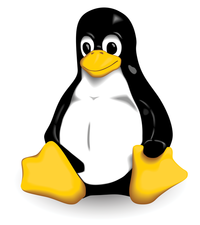Freeing the Linux kernel
Free At Last

© © lewing@isc.tamu.edu
The Linux kernel and its penguin mascot are widely viewed as the symbol of free and open source software. The truth, however, is that the Linux kernel is only partly free.
According to Alexandre Oliva, one of the founders of Free Software Foundation (FSF) Latin America [1], the Linux kernel was originally free when it was relicensed in 1992 under the second version of the GNU General Public License (GPL). However, since about 1996, it has been accepting what are known as firmware blobs – binary, proprietary bits of code best-known to occur in drivers for wireless and other peripherals. Because the source code for these blobs is not available, Oliva and other free software advocates argue that they make the entire kernel non-free.
That is why Oliva started the GNU Linux-libre project [2], so that free software advocates can become aware of the problem and use a truly free kernel with their operating system. Oliva has been an active member of The GNU Project since 1991, starting as a bug reporter and, after a couple of years, maintaining Autotools and the GNU Compiler Collection. After this work landed him a job with Red Hat in 2000, he also became involved with binutils, glibc, and the GNU Project Debugger. He has since become known as a regular speaker about the free software project.
Blobs
"The first blobs in Linux," Oliva explains, "were very small pieces of object code, disguised in the source code as arrays of characters [and] licensed under lax permissive free software licenses." However, he says:
[...]
Buy this article as PDF
(incl. VAT)
Buy Linux Magazine
Subscribe to our Linux Newsletters
Find Linux and Open Source Jobs
Subscribe to our ADMIN Newsletters
Support Our Work
Linux Magazine content is made possible with support from readers like you. Please consider contributing when you’ve found an article to be beneficial.

News
-
Introducing matrixOS, an Immutable Gentoo-Based Linux Distro
It was only a matter of time before a developer decided one of the most challenging Linux distributions needed to be immutable.
-
Chaos Comes to KDE in KaOS
KaOS devs are making a major change to the distribution, and it all comes down to one system.
-
New Linux Botnet Discovered
The SSHStalker botnet uses IRC C2 to control systems via legacy Linux kernel exploits.
-
The Next Linux Kernel Turns 7.0
Linus Torvalds has announced that after Linux kernel 6.19, we'll finally reach the 7.0 iteration stage.
-
Linux From Scratch Drops SysVinit Support
LFS will no longer support SysVinit.
-
LibreOffice 26.2 Now Available
With new features, improvements, and bug fixes, LibreOffice 26.2 delivers a modern, polished office suite without compromise.
-
Linux Kernel Project Releases Project Continuity Document
What happens to Linux when there's no Linus? It's a question many of us have asked over the years, and it seems it's also on the minds of the Linux kernel project.
-
Mecha Systems Introduces Linux Handheld
Mecha Systems has revealed its Mecha Comet, a new handheld computer powered by – you guessed it – Linux.
-
MX Linux 25.1 Features Dual Init System ISO
The latest release of MX Linux caters to lovers of two different init systems and even offers instructions on how to transition.
-
Photoshop on Linux?
A developer has patched Wine so that it'll run specific versions of Photoshop that depend on Adobe Creative Cloud.
